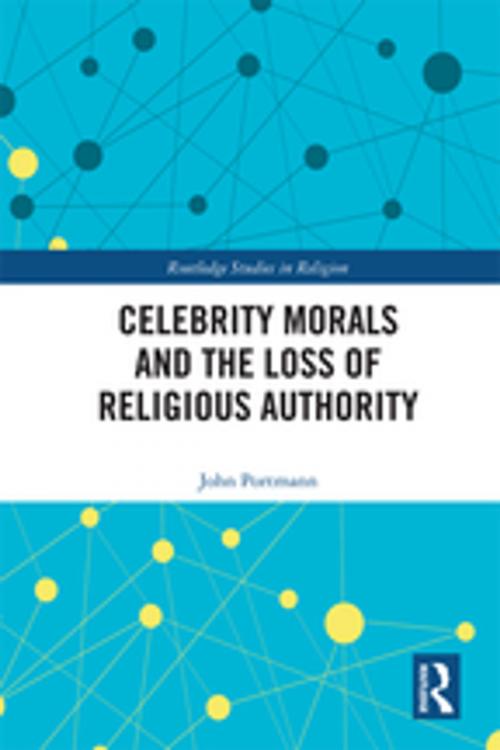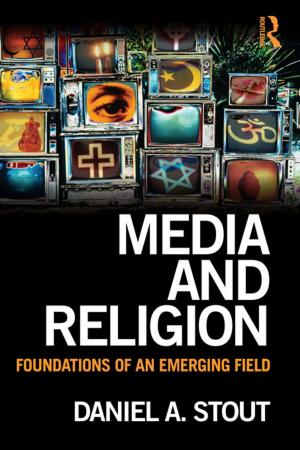Celebrity Morals and the Loss of Religious Authority
Nonfiction, Religion & Spirituality, Theology, Ethics, Social & Cultural Studies, Social Science, Cultural Studies, Popular Culture| Author: | John Portmann | ISBN: | 9781000011616 |
| Publisher: | Taylor and Francis | Publication: | April 30, 2019 |
| Imprint: | Routledge | Language: | English |
| Author: | John Portmann |
| ISBN: | 9781000011616 |
| Publisher: | Taylor and Francis |
| Publication: | April 30, 2019 |
| Imprint: | Routledge |
| Language: | English |
This book examines American popular culture to demonstrate that celebrities have superseded religious figures as moral authorities. As trust in religious institutions has waned over recent decades, the once frivolous entertainment fringe has become the moral center. Young people and voters increasingly take cues from actors and athletes.
The book begins by offering a definition of celebrity and showing that the profile of celebrities has changed dramatically, particularly since the 1960s. They can now chart their own careers, manage their own personal lives and weigh in on pressing moral issues in a manner that hasn’t always been the case. This can be to the good, it is argued, for some counterintuitive reasons. Very few stars pretend to be moral exemplars, unlike the frequently hypocritical elites they have replaced. Others, however, are seemingly poorly qualified to speak on complex moral issues. In the end, it also turns out that who tells us how to feel about any moral issue counts at least as much as what they tell us.
This is a fresh look at the impact of celebrity culture on contemporary morality and religious authority. As such, it will be of great use to academics working in religious studies and ethics, as well as popular culture and media studies.
This book examines American popular culture to demonstrate that celebrities have superseded religious figures as moral authorities. As trust in religious institutions has waned over recent decades, the once frivolous entertainment fringe has become the moral center. Young people and voters increasingly take cues from actors and athletes.
The book begins by offering a definition of celebrity and showing that the profile of celebrities has changed dramatically, particularly since the 1960s. They can now chart their own careers, manage their own personal lives and weigh in on pressing moral issues in a manner that hasn’t always been the case. This can be to the good, it is argued, for some counterintuitive reasons. Very few stars pretend to be moral exemplars, unlike the frequently hypocritical elites they have replaced. Others, however, are seemingly poorly qualified to speak on complex moral issues. In the end, it also turns out that who tells us how to feel about any moral issue counts at least as much as what they tell us.
This is a fresh look at the impact of celebrity culture on contemporary morality and religious authority. As such, it will be of great use to academics working in religious studies and ethics, as well as popular culture and media studies.















